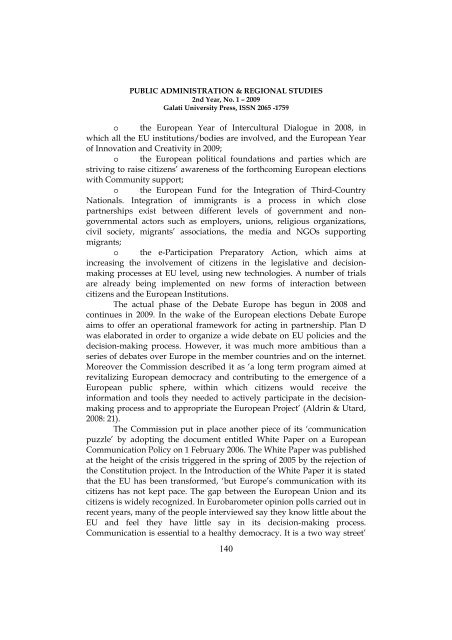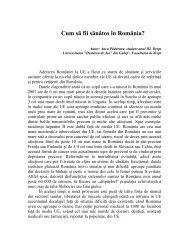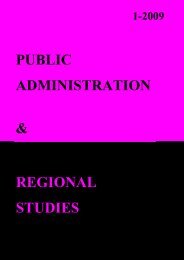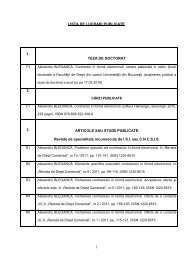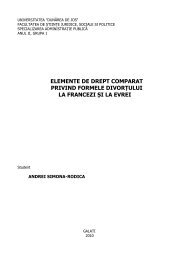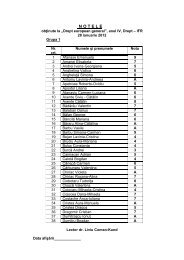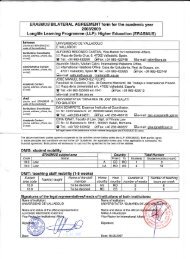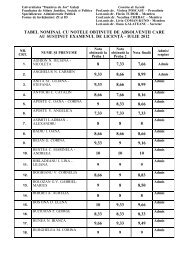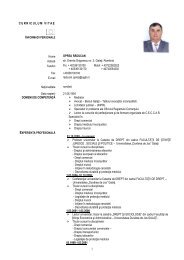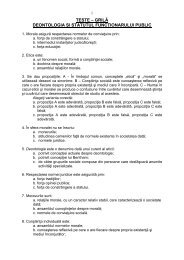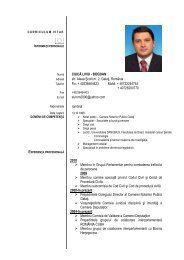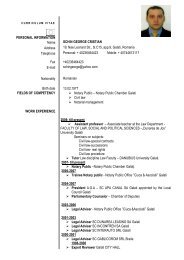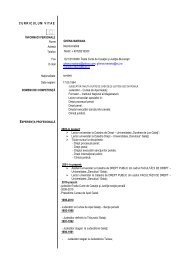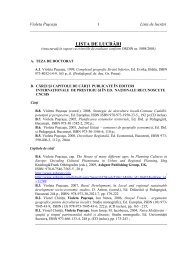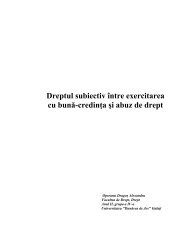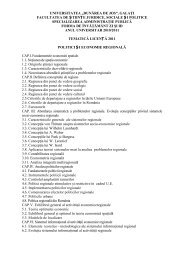regional studies public administration - Facultatea de Drept ...
regional studies public administration - Facultatea de Drept ...
regional studies public administration - Facultatea de Drept ...
You also want an ePaper? Increase the reach of your titles
YUMPU automatically turns print PDFs into web optimized ePapers that Google loves.
PUBLIC ADMINISTRATION & REGIONAL STUDIES<br />
2nd Year, No. 1 – 2009<br />
Galati University Press, ISSN 2065 -1759<br />
o the European Year of Intercultural Dialogue in 2008, in<br />
which all the EU institutions/bodies are involved, and the European Year<br />
of Innovation and Creativity in 2009;<br />
o the European political foundations and parties which are<br />
striving to raise citizens’ awareness of the forthcoming European elections<br />
with Community support;<br />
o the European Fund for the Integration of Third-Country<br />
Nationals. Integration of immigrants is a process in which close<br />
partnerships exist between different levels of government and nongovernmental<br />
actors such as employers, unions, religious organizations,<br />
civil society, migrants’ associations, the media and NGOs supporting<br />
migrants;<br />
o the e-Participation Preparatory Action, which aims at<br />
increasing the involvement of citizens in the legislative and <strong>de</strong>cisionmaking<br />
processes at EU level, using new technologies. A number of trials<br />
are already being implemented on new forms of interaction between<br />
citizens and the European Institutions.<br />
The actual phase of the Debate Europe has begun in 2008 and<br />
continues in 2009. In the wake of the European elections Debate Europe<br />
aims to offer an operational framework for acting in partnership. Plan D<br />
was elaborated in or<strong>de</strong>r to organize a wi<strong>de</strong> <strong>de</strong>bate on EU policies and the<br />
<strong>de</strong>cision-making process. However, it was much more ambitious than a<br />
series of <strong>de</strong>bates over Europe in the member countries and on the internet.<br />
Moreover the Commission <strong>de</strong>scribed it as ‘a long term program aimed at<br />
revitalizing European <strong>de</strong>mocracy and contributing to the emergence of a<br />
European <strong>public</strong> sphere, within which citizens would receive the<br />
information and tools they nee<strong>de</strong>d to actively participate in the <strong>de</strong>cisionmaking<br />
process and to appropriate the European Project’ (Aldrin & Utard,<br />
2008: 21).<br />
The Commission put in place another piece of its ‘communication<br />
puzzle’ by adopting the document entitled White Paper on a European<br />
Communication Policy on 1 February 2006. The White Paper was published<br />
at the height of the crisis triggered in the spring of 2005 by the rejection of<br />
the Constitution project. In the Introduction of the White Paper it is stated<br />
that the EU has been transformed, ‘but Europe’s communication with its<br />
citizens has not kept pace. The gap between the European Union and its<br />
citizens is wi<strong>de</strong>ly recognized. In Eurobarometer opinion polls carried out in<br />
recent years, many of the people interviewed say they know little about the<br />
EU and feel they have little say in its <strong>de</strong>cision-making process.<br />
Communication is essential to a healthy <strong>de</strong>mocracy. It is a two way street’<br />
140


